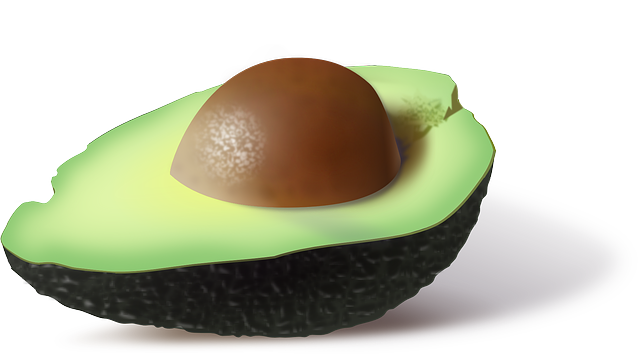We need two types of nutrients for our survival: micronutrients and macronutrients.
The nutrient division of micronutrients vs. macronutrients is based on the quantity the body’s needs. We need micronutrients in small amounts and macronutrients in large amounts.
Micronutrients
Micronutrients are nutrients that the human body needs in minute amounts. Although only required in small quantities, their deficiency can lead to critical health problems.
Many of the diseases and conditions that people face today are due to a deficiency of micronutrients. The World Health Organization (WHO) says that labor efficiency will increase significantly if we eliminate this deficiency.
Micronutrient Deficiency
Deficiencies in these critical nutrients are common due to several factors
-
Nutrient Deficiency in Plants
Plants become nutrient deficient because the soil in which they are grown is deficient. Plants don’t’ make minerals; they absorb their nutrients from the ground.
Our soils are becoming more deficient because of over-farming and the lack of nutrients being put back into the land. The practice of crop rotation to preserve the health of the land is now rarely used.
The use of pesticides and fungicides also reduces the levels of micronutrients in plants.
Organic or biodynamic fruits and vegetables have higher levels of micronutrients present.
-
Human Stress
Stress affects the body in many ways and certainly can interfere with the absorption of micronutrients. Stress inhibits digestive enzymes lowering the ability of the gut to absorb nutrients. Physical stress can cause this just as much as emotional stress, and often it’s hard to pinpoint what things are contributing to physical stress. Somewhat obscure things like cell phone radiation, chemicals, body pain, and inflammation can be some of the physical pressures affecting the body.
-
Cigarette Smoking and Alcohol Consumption.


The body uses up many micronutrients to process and detoxify substances such as alcohol and by-products of cigarettes. Key B vitamins and magnesium, especially, can be depleted in this process.
The body is always trying to restore balance, and this process can deplete the body of important micronutrients. The toxins we are exposed to regularly, often without realizing, can deplete the body of these key micronutrients.
Here is a List of Micronutrients
Vitamins – Vitamin A, Vitamin B, Vitamin C, Vitamin D, Vitamin E, Vitamin K, and Carotenoids.
Minerals – Boron, Calcium, Chloride, Chromium, Cobalt, Copper, Fluoride, Iodine, Iron, Magnesium, Manganese, Molybdenum, Phosphorous, Potassium, Selenium, Sodium, and Zinc.
Organic Acids – Acetic acid, Citric acid, Lactic acid, Malic acid, Choline, and Taurine.
It is better to get these from natural sources such as fruits and vegetables, increasing their bio availability.
However, it is often necessary to use supplements to increase your micronutrient status and bridge the gap between your body’s’s needs and what it can absorb from food.
What Micronutrients Do in the Body?
Here are some examples of some of the roles micronutrients have in your body.
Magnesium- helps produce energy, serotonin, is a muscle relaxant, helps sleep, helps mood, supports the heart and cardiovascular system, supports healthy hormone balance.
Zinc– Immune support helps blood sugar balance, healthy skin, supports detoxification, taste, and smell.
Folic Acid– supports cardiovascular health, healthy homocysteine levels, reduces the risk of neural tube defects, helps insomnia, stress support, and may help restless legs syndrome.
These are just a few examples of what just three micronutrients do in the body. This is just a snapshot, as they are involved in many more processes in the body than I have described.
Although the body can compensate for deficiencies for short periods of time, the body will start to show symptoms of deficiencies if prolonged.
Macronutrients
Macronutrients constitute the bulk of the food we eat. They are proteins, carbohydrates, and fats.
Proteins
Proteins are considered the building blocks of life. Most of our body consists of proteins, which are made from amino acids.
These amino acids are required to build and repair muscles, connective tissue, skin, hair, nails, hormones, neurotransmitters, the digestive system, and even our immune system.
It is, therefore, vital to get proper levels of protein into the body every day.
Some good protein sources include fish, poultry, meat, legumes, soy, eggs, milk, and milk products.
It is essential when looking at different diets to make sure there is adequate protein in the diet. It is possible to get adequate protein with vegan and vegetarian diets, but more thought must go into food planning.


Carbohydrates
Carbohydrates consist of sugar or starches and are the primary energy providers for our bodies. Excess carbohydrates are converted into fat and stored in our bodies. All foods have carbohydrates in some measure.
There are many different types of carbohydrate foods, some have more sugar than others, and some are more processed than others.
With all food, it is better to consume the least processed as possible, and that will naturally eliminate or at least reduce the amount of the disease risk carbs in the diet.
Fruits and vegetables are healthy carbohydrate choices.
Fats
Fats are substances that your body stores for future use. Although some people believe fats should be avoided altogether, there is a distinction to be made here.
There are good fats and bad fats. Bad fats should be avoided, and good fats should be part of your diet. Good fats are crucial for the proper functioning of the body.


Healthy fats provide an essential energy source for the body and can have a significant anti-inflammatory effect.
Healthy fats include pure fish oil, flaxseed oil, nuts, olives and olive oil, and avocados.
Proteins, carbohydrates, and fats should be eaten in proper proportions. If they are not, lifestyle diseases may affect you.
This article was about Macronutrients vs. Micronutrients.

